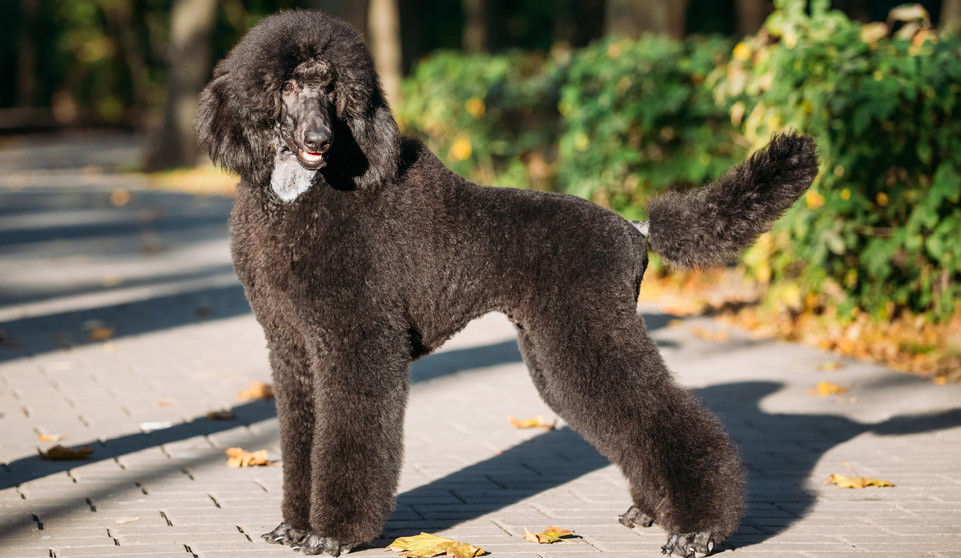Poodle Standard Information

History
Originally bred as a water dog, their ancestors assisted their owners bringing in nets, herding animals and retrieving game in marshes. In fact Poodle comes from the German word Pudeln which roughly translates to ‘to splash in water’.
The country of origin could be Germany, France or Denmark but it is now officially recognised as a dog of the French.
Characteristics
- Highly Intelligent
- Elegant
- Energetic
- Hypoallergenic Qualities
- Loves Water
Poodle Temperament & Size
The Poodle can be found in three varieties; Toy, miniature and standard
Poodles are extremely intelligent and are ranked as the second most intelligent dog after the Border Collie. They are also very people orientated, eager to please and easy to housetrain and hence make lovely pets.
Unlike most other dogs they sport a single layer coat that is dense and curly. It is high maintenance and grooming or clipping is imperative to avoid matting.
Poodles have been successfully crossbred with Labrador Retrievers to produce low-shedding, hypo-allergenic, highly trainable guide dogs for the visually impaired.
Poodle Life Span & Health Problems
The average lifespan of a Poodle varies according to size. Toy and miniature poodles can live for up to 20 years. Standard Poodles only live on average 11 – 12 years.
Common Illnesses include;
- Addison’s – Inadequate production of steroid hormones resulting in lethargy, gastric problems, inability to tolerate stress and potentially fatal electrolyte imbalances.
- Bloat (Gastric Dilatation Volvulus, GDV) – Twisting of the stomach resulting in rapid swelling of the abdomen causing pain and eventual death if not treated.
- Epilepsy – Recurrent seizures.
- Sabaceous Adenitis – Swelling of glands in the skin causing scaling, flaking, hair loss and occasionally secondary infection.
- Progressive Retinal Atrophy (PRA) – Mainly a condition of miniature and toy poodles eventually causing blindness.
- Hip Dysplasia – Genetic condition that causes abnormal development of the hip joints in young dogs. This can lead to early onset degenerative joint disease.
- Hypothyroidism – Underactive thyroid gland causing obesity, lethargy, ear infections and skin problems.
- Patellar Luxation – Dislocation of the knee cap mainly affecting miniature and toy breeds.
- Cancer
- Ear infections – Long drooping ears and excess hair predispose poodles to infection.
